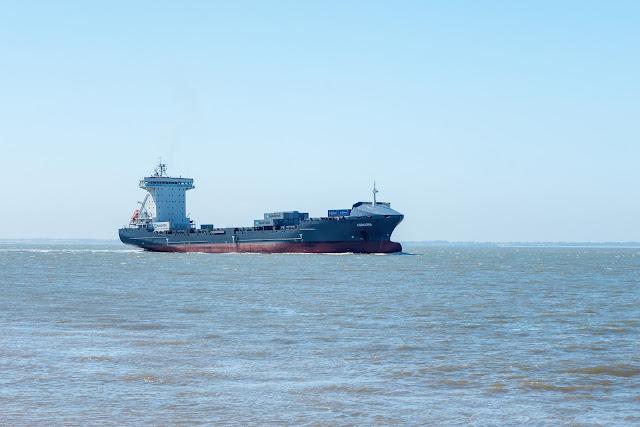Flags of Convenience
Recently, while at Languard Point, I was at watching these two vessels coming into Felixstowe Port and mulling over their countries of origin. So, when at home, a bit of research on the internet gave me the following.
ANNABA, registered in Liberia but owned by a firm in Germany. It has a length of 168m and deadweight of 20600 tons
The MAERSK ESSEN, registered in the Marshall Islands but the owner is from Singapore. It has a length of 366m and deadweight of 142105 tons.The interesting point is that neither ship is registered in the country of the owner.
So, why is this?
Well, When registering a vessel for international travel, one must choose a nation under the flag of which that vessel will sail. The term “flag of convenience” refers to registering a ship in a sovereign state different from that of the ship's owners.
Why register a flag of convenience?
Ships registered under flags of convenience can often reduce operating costs or avoid the regulations of the owner's country. To do so, a vessel owner will find a nation with an open registry, or a nation that allows registration of vessels owned by foreign entities. A ship operates under the laws of its flag state, so vessel owners often register in other nations to take advantages of reduced regulation, lower administrative fees, and greater numbers of friendly ports.
History of open registries
The modern practice of flagging ships in foreign countries began in the 1920s in the United States after shipowners became frustrated with increased regulations and rising labor costs and began registering their ships in other nations (originally Panama). As other nations began to allow open registries a few nations became standouts in the flag of convenience industry. In 1968, Liberia grew to surpass the United Kingdom as the world's largest shipping register and, as of 2009, more than half of the world’s merchant ships were registered with open registries, with Panama, Liberia, and Marshall Islands flags accounting for almost 40% of the entire world fleet as calculated by tonnage.
Criticisms of flag of convenience systems
Many nations with open registries are criticized for having substandard regulations. For example, many shipowners are allowed to remain legally anonymous in open registry systems, making it difficult to identify and prosecute legal actions (whether civil or criminal) against these individuals. Some ships with flags of convenience have been found engaging in criminal activity, offering substandard working conditions, and spewing pollution into the environment or illegally fishing. As a result, ships flying under these flags are now targeted by other nations for special enforcement when they make call in one of the host nation's ports.







Comments